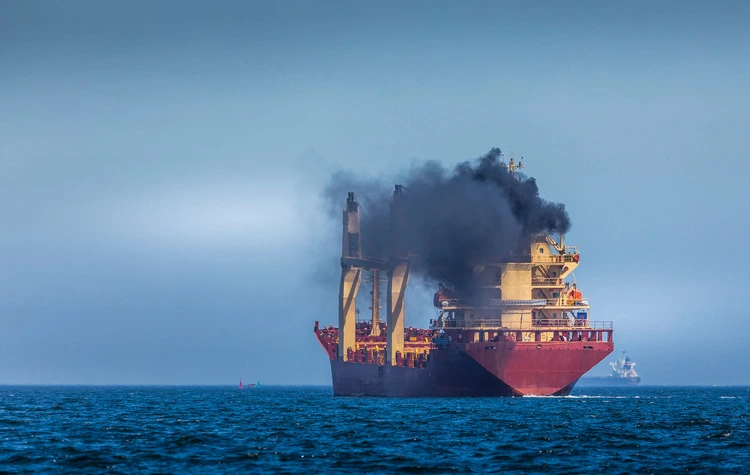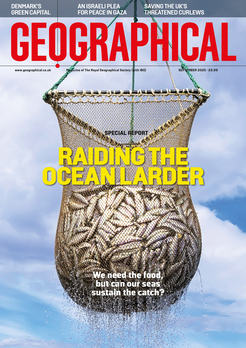
New agreement to tax carbon in shipping industry comes after more than ten years of negotiations between countries
By
The world’s first global carbon tax scheme set to help decarbonise the shipping industry was approved by the International Maritime Organisation earlier today – marking the first time a global sector has been subjected to such a mechanism.
From 2028, any owners of large international vessels must use a cleaner fuel mix or be subjected to a penalty of up to $380 per tonne of carbon dioxide emissions produced from burning traditional planet-polluting fuels. Through this measure, a revenue of $10 billion per year is set to be made that will aid IMO investment in green fuels and technologies to reach net zero.
A second measure outlined by the IMO today stipulated a global marine fuel standard, which would eventually phase in low-carbon fuels for ships around the world.
Enjoying this article? Check out our related reads:
Although dubbed as ‘crucial steps’ by the IMO, who hope the move will incentivise the use of cleaner fuels, critics have highlighted how the new plan may fall short of achieving key climate targets. Under the measures, emissions are set to fall by 8 per cent by 2030, significantly less than the 20 per cent goal outlined in an 2023 IMO climate strategy.
Additionally, no specific commitments have yet been made for funds to go to countries most impacted by climate change, such as Pacific Island nations.

A scenario may also arise in which ships choose to pay to pollute, rather than entirely decarbonise, according to senior director for climate change nonprofit Opportunity Green Emma Fenton.
In total, 63 countries – including China, India and Japan – supported the deal. Sixteen countries opposed it, including Saudi Arabia and Russia, while 25 nations, such as small Pacific island countries, abstained from voting due to concerns the deal did not offer a fair and guaranteed pathway to a greener future. These nations initially advocated for a universal shipping levy, a stance opposed by other nations who instead argued such a levy would impact global trade.
The US was absent from negotiations, citing it would enact ‘reciprocal measures’ in the event any fees are charged to US ships.
What is the environmental cost of shipping?
More than 90 per cent of all the world’s commerce is transported via ship, contributing approximately 3 per cent of worldwide greenhouse gas emissions.
According to the IMO, shipping emissions will increase by up to 50 per cent by 2050 if action is not taken.




